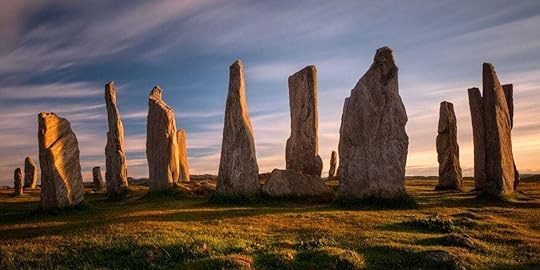Our Climate Needs A Mythology

Humanity has deep and ever-present mythologies of weather. From storm gods and sun spirits, flood myths and harvest rites, sacred rains and wrathful winds. Weather has shaped not only our farming calendars but also our collective imagination. Weather wasn’t just forecasted; it was feared, worshipped, and wooed. Weather was a mythological narrative.
It still is in most agrarian communities, and echoes reverberate whenever an urban child sings ‘the cold never bothered me anyway’.
But the climate itself? Climate has no Zeus or Thor. No Tlaloc or Tāwhirimātea.
Climate, unlike weather, is slow, statistical, and strangely characterless. It unfolds not in dramatic tempests but in drifting scientific baselines, melting margins, and probability curves. It is a mythological scale threat without the accompanying stories, songs, beliefs, rituals, lessons and icons. That lack, perhaps, is why we struggle so much to care.
This is the great paradox of climate change: it is both the most scientifically documented crisis in human history and the most poorly narrated.
We have an abundance of evidence, and a deficit of meaning.
If we are to rise to the challenge of climate change technologically, psychologically and spiritually, we need more than data and deadlines. We need a mythology. A way of feeling this crisis in our bones, of placing it in story, of seeing ourselves not just as culprits or victims, but as protagonists.
Because myths don’t just explain the world. They shape who we believe we are. In the absence of a shared climate mythos, we risk casting ourselves in the wrong roles: the powerless witness, the indifferent bystander, or the cynical realist. We need instead the healer, the magician, the warrior.
As I’ve often said, climate isn’t just a crisis of chemistry, but of culture. And to meet the moment, we must not only communicate better, but also craft a modern mythology fit for planetary survival.
Mythology As Survival Technology
Myth is not a luxury. Or fluff for children and those easily deceived. If we think of mythology merely as a relic of pre-scientific ignorance, then we neglect one of humaniti’s main coping strategies and drivers of action.
It is, as scholar Karen Armstrong writes in her brilliant book A Short History of Myth, myths are "a system that helps us make sense of our place in the world." Myths shape our moral frameworks, our cultural cohesion, and our capacity to endure suffering and uncertainty.
Anthropologists have shown how myths evolved in human societies as tools for transmitting values, encoding knowledge, and psychologically preparing for hardship. Myths are a survival technology, which are desperately needed when facing a survival crisis like climate change.
One of my favourite books, Joseph Campbell’s The Hero with a Thousand Faces, maps the common structure of myth across time and culture. He sets out the steps: the call to adventure, the descent into the unknown, the return with a gift. These archetypes echo across epics from Gilgamesh to Star Wars, and across religious traditions from Buddhism to Christianity. They are, as Carl Jung suggested, rooted in our collective unconscious, the deep structure of human emotional and symbolic life.
In moments of civilizational stress, it is mythology, not raw data, that enables societies to find coherence and hope. It is what binds individual grief into communal meaning.
The Enlightenment Gave Us Facts, But Took Our Fire.
Since the Enlightenment, modernity has increasingly privileged reason over myth. Science became the dominant epistemology of the West, and myth was relegated to fiction, folklore, or faith.
I’ve considered myself a dedicated empiricist since I first discovered critical thinking as a practice. But the evidence has led me to conclude that when it comes to climate change, science has a blind spot. In the age of empiricism, we lost the cultural muscle for making meaning from complexity.
Climate discourse reflects this deficit. Our most urgent public narratives are almost entirely framed by scientific facts, probabilistic models, and economic forecasts. We talk of 1.5°C, of CO₂ parts per million, of gigatonnes, transition pathways, and net-zero targets.
These are vitally important, but they do not sing to the soul.
We are attempting to fight a dragon with spreadsheets.
Climate Change As Mythic Battle
If climate change is a mythic-scale challenge, then mythic frameworks are required to confront it.
As I look around a field I know all too well, I can’t find the coherent collective mythology for this moment.
The unwilling heroes, the villains to name without abstraction, rituals to help us process grief, rage, and love, symbols that transcend language and culture and above all, narratives that tell us who we are, where we are going, and why we must go together.
This cultural vacuum is too often filled by either despair or denial.
Ingenious and traditional cultures, many of whom have lived through exploitation and collapse, hold a mythology, a belief, that signposts a solution. It’s been my privilege to sit at the feet of storytellers from the Navajo Nation, be transported by Aboriginal Dreamtime, the Mother of the Sea of Greenland is a lesson that will never leave me, I fear the Amazon Boitatá serpant.
These stories uplift me, scare me, teach me.
And I learn that every story was born from somewhere.
Modern Mythology For Climate
What would a modern climate mythology look like? I don’t know yet. But it could be the greatest story ever told.
I do know it would not be a single narrative or a ‘one ring’ market-researched message. Instead, we need an ecosystem of stories: culturally diverse, emotionally resonant, and spiritually compelling.
We will need archetypes. The Fire Bringer, who carries dangerous but necessary power. The Trickster, who exposes corruption with wit and mischief. The Child of Tomorrow, who embodies hope and future memory.
These archetypes must not be just fantasies. They are ways of emotional identification with roles we might play in the real world.
And we’ll need to frame the science in story. Climate not as scientific emergency, but as a threshold. The crisis is a passage, not an end.
The Story That Can Save Us
Myth is not the opposite of truth, it’s how truth travels across generations.
To give ourselves the best chance, we must resurrect what humans have always turned to in times of peril: story, symbol, and myth.
Even an empiricist can see that.
***
You might enjoy other articles from my archives:
Thankfully, Everything Is A Story
Fighting Monsters When You’re Tired
Creative People Are More Optimistic About Our Future, Apparently



